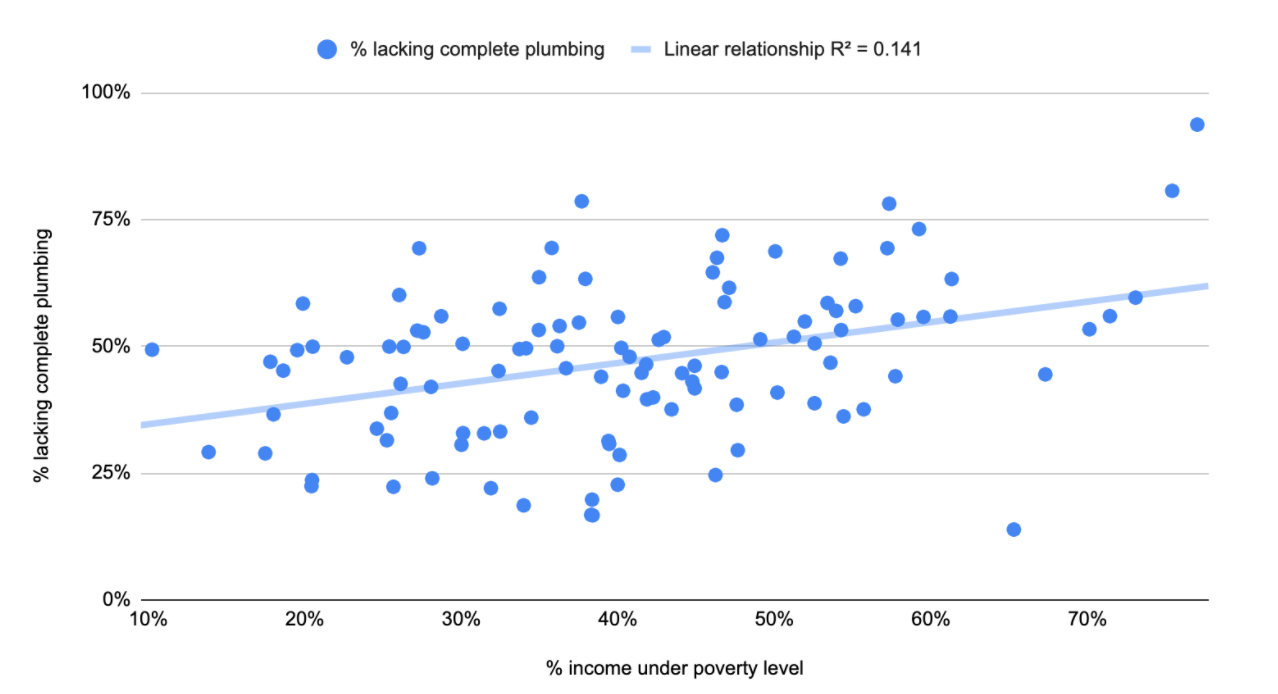About 30% of homes in the Navajo Nation do not have access to adequate plumbing or running water. The infrastructure disparity is the result of centuries of neglect, broken treaties, and unfunded projects. I researched the roots and health impacts and used data from the U.S. Census to map how lack of plumbing intersected with poverty rates and other socioeconomic characteristics in the Navajo Nation. I used a climate adaptation health equity framework to evaluate two methods of addressing the disparity - the 2021 Infrastructure Bill and local, decentralized grassroots efforts.
The health equity framework included developing questions specific to the issue of water infrastructure in the Navajo Nation and assessing the solutions using those questions. Some of the questions developed included:
How are historical injustices and oppressions of the Navajo people recognized? Is water access held immutable and the lack of realized water rights in the past corrected so that future generations are guaranteed the promised water rights?
Will the solutions provide new, culturally relevant, and well-paying jobs for the people in the Navajo Nation? Will they lead to any job losses for current workers? Will the jobs be equitably distributed?
Do the solutions recognize the responsibilities of local Chapters and other administrative bodies in implementing the programs?

